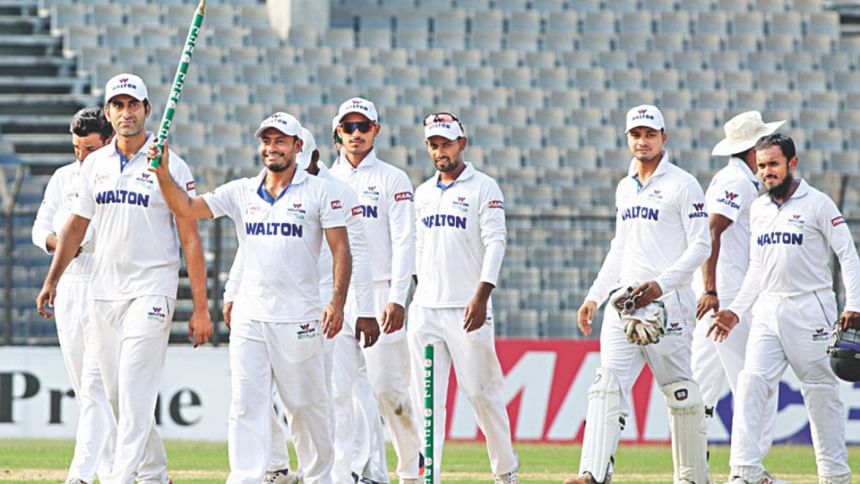Devaluing first-class cricket

While the national cricketers witnessed around a 60 per cent increase in their salaries earlier this week, there is a chance that the country's first-class cricketers, a number of whom are under the Bangladesh Cricket Board's (BCB's) contract, may not get any monthly salaries from next season.
According to BCB director Khaled Mahmud, the board in its last meeting had discussed a proposition to stop providing monthly salaries to those under first-class contract and increase their match fee instead.
A salary system for the first-class players was introduced in 2012 when more than 100 players, apart from those playing in the national team, were brought under the BCB. This was done in order to help decentralise cricket.
However, as the years progressed, the number of players under that contract gradually decreased. That number may go down to zero next season.
“Firstly, this is just something we had discussed and it's not confirmed as yet. But why we thought of this is because there are a number of first-class cricketers who do not get to play for their divisions and still earn a monthly salary.
“That's not fair to those players [who are not under contract] who play for four days and just walk away with a match fee. If we increase the match-fee by a great deal then it will increase competition among the players and it will also give the deserving players more money,” Mahmud told The Daily Star yesterday.
“Again, this is just in the initial stage. There is a mixed opinion regarding this move in the board,” he added.
Having heard of the possible move, a few first-class players expressed caution.
“Our first-class cricket has improved a lot and we are at a stage where we see players scoring double hundreds and teams scoring more than 600 runs and bowlers doing well too. Whatever move the board takes, it should make sure that it does not demotivate the players,” said former national opener Shahriar Nafees.
“If they do scrap the salary system, they should provide a major increase in the match fee, so that the players can earn as much or more than what they do now including the match fee and the monthly salary,” he added.
Left-arm spinner Abdur Razzak echoed Nafees's sentiments. “Honestly speaking it's too early to comment on this issue. But the monthly salary helps a lot. I don't know if there will be a good enough increment in the match fee in order to cover the money earned through the salary,” he said.
On an average a first-class cricketer earns around Tk 2,40,000 a year because of the monthly salary. That figure goes up to Tk 3,90,000 from the National Cricket League a year after including the match fee, if they play all matches.
Certain first-class cricketers have said that if the match fee is not increased enough first-class cricketers might have to resort to taking part in amateur tournaments, some of which pay quite heftily.
“Why should we struggle so much to play four-day cricket if we can earn that much by playing a local T20 game?” summed one cricketer.

 For all latest news, follow The Daily Star's Google News channel.
For all latest news, follow The Daily Star's Google News channel. 








Comments